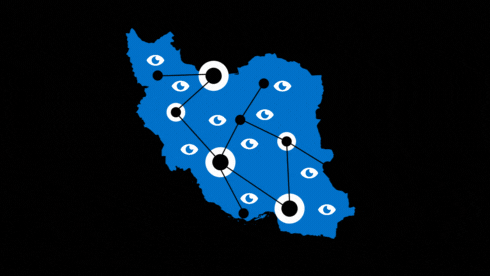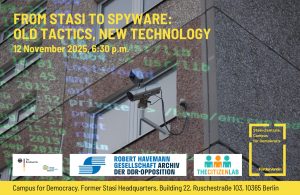Paradigm Initiative Nigeria Seeks Information on Surveillance Systems in Nigeria
Recent research from The Citizen Lab has detected the presence of devices capable of surveillance on networks operated by Nigerian Internet service providers. In January 2013, Citizen Lab researchers found installations of Blue Coat Systems’ PacketShaper device on netblocks associated with IPNX ISP and Cobranet. In April 2013, Citizen Lab released “For Their Eyes Only: The Commercialization of Digital Spying,” in which researchers identified FinFisher servers on a network operated by Suburban Telecom.
Recent research from The Citizen Lab has detected the presence of devices capable of surveillance on networks operated by Nigerian Internet service providers. In January 2013, Citizen Lab researchers found installations of Blue Coat Systems’ PacketShaper device on netblocks associated with IPNX ISP and Cobranet. In April 2013, Citizen Lab released “For Their Eyes Only: The Commercialization of Digital Spying,” in which researchers identified FinFisher servers on a network operated by Suburban Telecom.
Recent research from The Citizen Lab has detected the presence of devices capable of surveillance on networks operated by Nigerian Internet service providers. In January 2013, Citizen Lab researchers found installations of Blue Coat Systems’ PacketShaper device on netblocks associated with IPNX ISP and Cobranet. In April 2013, Citizen Lab released “For Their Eyes Only: The Commercialization of Digital Spying,” in which researchers identified FinFisher servers on a network operated by Suburban Telecom.
The Nigerian government’s procurement of Internet surveillance capabilities attracted local media attention on April 25, 2013, when the Premium Times reported that President Goodluck Jonathan had awarded a USD 40 million contract to Elbit Systems, an Israeli company that markets itself as an “international defense electronics company.” One day earlier, Elbit Systems announced in a press release that it would supply its “Wise Intelligence Technology (WiT) System for Intelligence Analysis and Cyber Defense,” a device tailor made for digital data collection and reportedly capable of harvesting network traffic, to “a country in Africa.” Premium Times’ sources within the Jonathan administration confirmed that the country in question was Nigeria.
‘Gbenga Sesan, a Cyber Steward Network partner and Executive Director of the Paradigm Initiative Nigeria (PIN) called attention to the issue on Twitter by highlighting Section 38 of the Nigerian Budget Office’s 2013 Appropriation Act, which clearly detailed that the Nigerian government had allocated N 4,312,479,720 (USD 27.6 million) to the “Wise Intelligence Network Harvest Analyzer System,” in addition to similarly large allocations toward an “Open Source Internet Monitoring System” and a “Personal Internet Surveillance System.”
On May 6, 2013, PIN filed a Freedom of Information (FoI) request with the Nigerian government regarding the USD 40 million Internet surveillance contract to Elbit Systems. The FoI filing requested that the government provide details of the process through which the contract was awarded and any information that could shed further light on the substance of the contract itself.
As of May 23, 2013, President Jonathan was reportedly considering the option of canceling the contract with Elbit Systems and had convened a meeting with the company’s management to discuss their potential breach of confidentiality in publishing the initial press release. However, the government failed to respond to PIN’s FoI request, and the group subsequently applied for an order of mandamus through the Federal High Court in Abuja. In response to the request, Federal High Court Justice Gabriel Kolawole asked the National Assembly to amend Nigeria’s 2011 Freedom of Information Act to henceforth bar unjustified requests for information. In a press release, PIN challenged the High Court’s dismissal and called on the National Judicial Institute to address the issue. As of September 2013, PIN’s lawyers have filed an appeal against Justice Kolawole’s ruling and are awaiting a response.


